[An interview with Kevin McCarthy, CEO of the Seattle-based Facebook analytics company, Likester]
S: Kevin, thanks for talking with me today. In addition to the fact that you’re my stepson (full disclosure), you’re a succesful serial entrepreneur. You’ve started a new company called Likester (definitely not to be confused with Friendster). You and I were talking about Likester, and I had a few questions about how it might be useful for musicians or labels. I understand a little about Likester – it’s basically a giant database of Facebook “Like” data and some software that helps you visualize correlations between Facebook brand “Likes”, is that correct? And the idea is that this information can be used by marketers, presumably to better target their Facebook advertising to those Facebook users who are more likely to “Like”, and thus buy, their products? Tell me more about Likester – what is the basic idea behind the tool?
K: That is correct. Likester has tracked and organized over a billion Facebook “Likes” from millions of people. The basic idea behind Likester Pro is that you can learn a lot about your customers, the customers of your competition, or the fans of any Facebook Page out there.
S: Let’s analyze a specific case study – like some popular musician with a lot of Facebook “Likes” on their fan page. I’m a Mackemore fan – not just his music, but his social media presence. Can you walk me through the Macklemore Facebook “Like” affinities in the visual above, and tell me how Likester might be used in this scenario? How does it help Macklemore understand their fan base better, and why is that important?
K: These screenshots are looking at Macklemore’s fan base in Likester Pro. We have a Likester Sample Size of 5,737 people from Macklemore’s Facebook Page. What this means is that there are 5,737 actual people in our database who “Like” Macklemore. This represents a little less than 1% of his 689,989 total fans. So we then take those 5,737 people, and we look at what they “Like”, and then we group, sort, and visualize that information to make it useful.
In the first scenario, we’re looking at what types of TV Shows people who “Like” Macklemore also “Like”. You can see that the TV Show Workaholics has the strongest affinity score among Macklemore fans. What this means is that Mackelmore fans are much more likely to “Like” the TV Show Workaholics than a normal user. The insights are even more profound when you switch to the “Musician/Band” category. You can see there’s a very strong correlation with Blue Scholars.
I think that for musicians, understanding your audience is the key to resonating with them. For managers and distributors, Likester Pro shows you specific audiences to advertise to, and since Likester Pro is integrated directly with the Facebook Ads API, you can also then go ahead and purchase Facebook Ads directly from within Likester.
S: Can you give perhaps a few other ideas of how musicians in other genres, say ukelele cover bands, might use Likester to market their music in new and creative ways? Let’s choose a smaller band, say like the Seattle band, The Castaways ?
K: Sure. We don’t have any data on the The Castaways, because they only have a few hundred likes. But searches for other Facebook Pages in this space turned up better data. “Ukelele” the interest has a good sample of users, and below I’m looking at what other things, or other musicians, are “Liked” by the people who “Like” the interest “Ukelele”. This is a bit of a rabbit hole, since I can click on any of these circles, and look at the data of their fans. I can also view a Likester Pro heatmap to see where that interest is popular – this might help with marketing or tour planning.
The goal is to better understand and connect with your audience, and I think in that sense that Likester Pro can really help anyone.
S: Does Likester perform the same kind of analytics for other social media follower data, like Twitter, or just for Facebook?
K: It’s just Facebook data right now, but Facebook data is so much more interesting because it’s structured. A person “Likes” a thing on a date and time. With Twitter, most of the tools out there deal with semantic/sentiment analysis, but still can’t account for subtle linguistic concepts such as irony. If I said out loud “Boy I really like the New Kids on the Block” you would detect my irony, I hope, but sentiment analysis would fail at that.
S: This is a pretty sophisticated tool. For musicians or music labels, how do you see this fitting into their set of Facebook analytics tools?
K: The key difference between Likester and other Facebook tools is that the information we’re presenting is all coming from nonpublic data. There’s a lot of tools for managing your Facebook Page, or learning about engagement and things like that. There are NOT a lot of tools for better understanding your customers.
From the Facebook Advertising perspective, we allow you to target somewhat nonsensical groups of people with Facebook Ads directly from our interface, eliminating the need to manage through Facebook directly. For example, take the ukulele band. If you wanted to create Facebook Ads for a new record, common sense wouldn’t suggest targeting fans of Hawaiian Airlines, but Likester’s Data would. There are hundreds of examples like that for every Facebook Page.
S: What is the pricing structure for Likester? Is this something a band or indie label could really afford? Chirpify has really targeted musicians with their merchandising services, do you have any special deals for musicians?
K: First and foremost, to try the product is free, so I’d encourage everyone to do that. Once your trial is over, our model is $149/month for research, or $220/month + 10% of what you spend on Facebook for ads management. I’d like to offer readers of this blog special pricing, please sign up for a free trial, and then email kevin {at} Likester {dot} com for a special price.
S: Ever the salesman, Kevin (didn’t you run a few Radio Shacks in your youth, as I recall?). Special pricing is always good – so thanks for that offer. We musicians are not the wealthiest of people, but we can also try the tool for free, which is very cool as well.
Kevin, thank you so much for spending time with us talking about some musician-specific case studies with Likester. It’s a really interesting tool, and I’m sure it will prove useful to musicians and labels looking to more precisely understand their fan bases as well as to market to new customers. Best of luck with your new company.

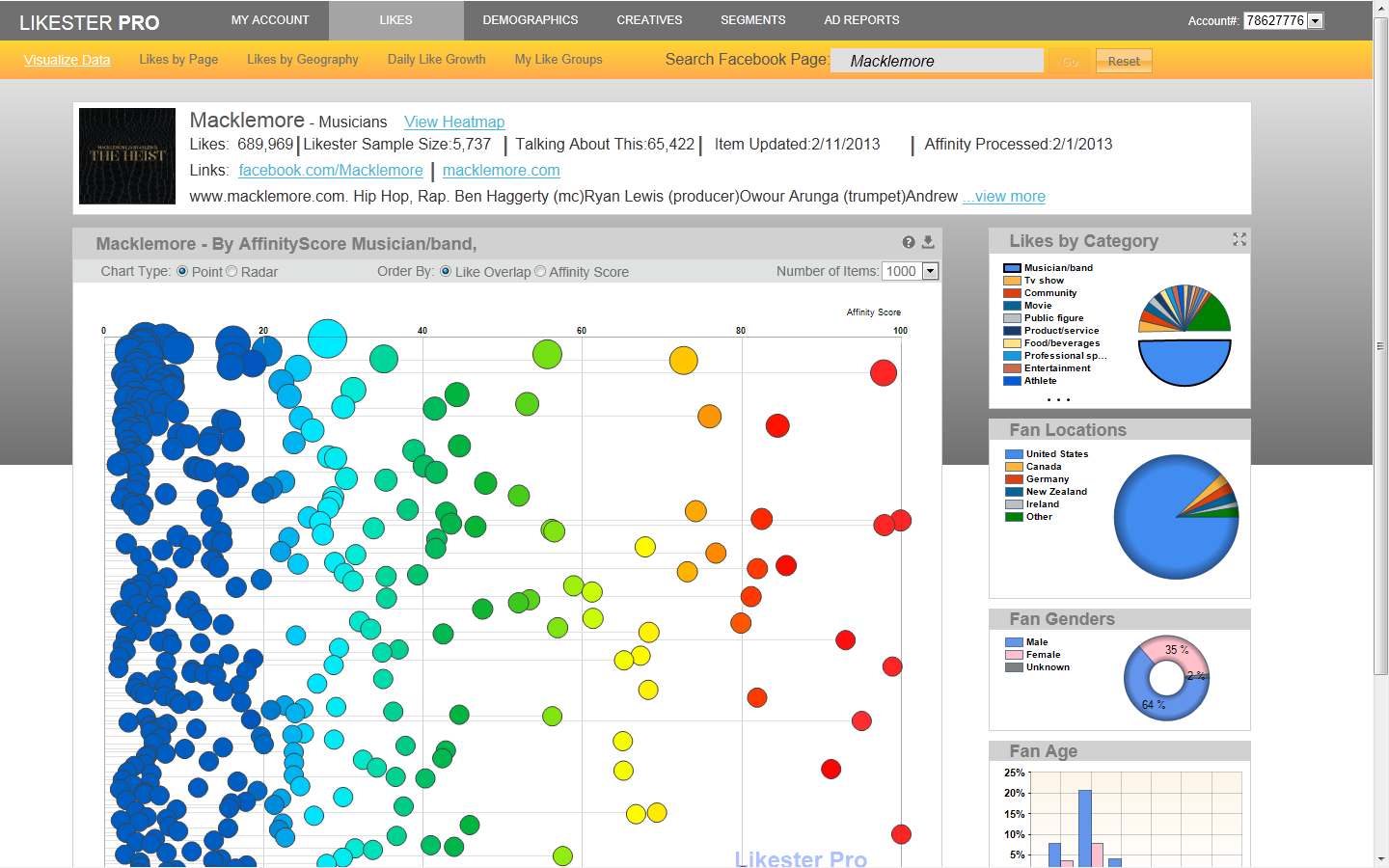
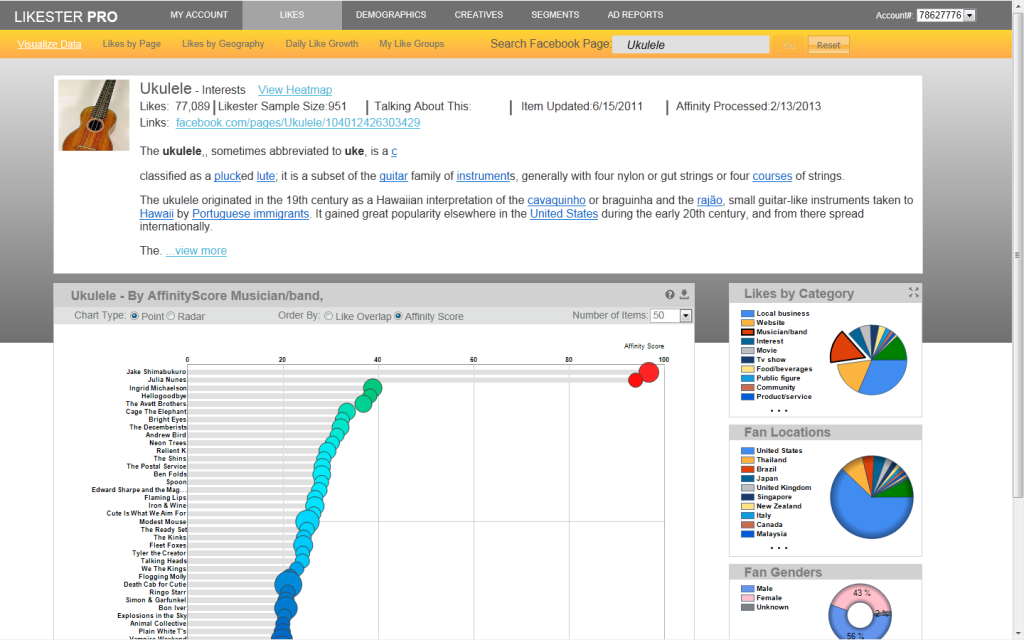
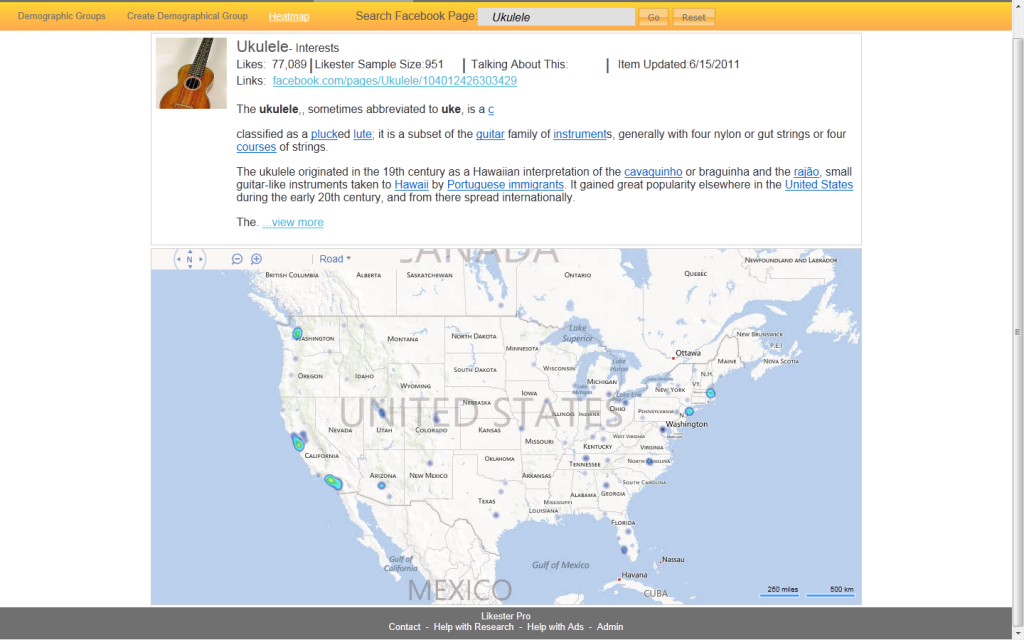
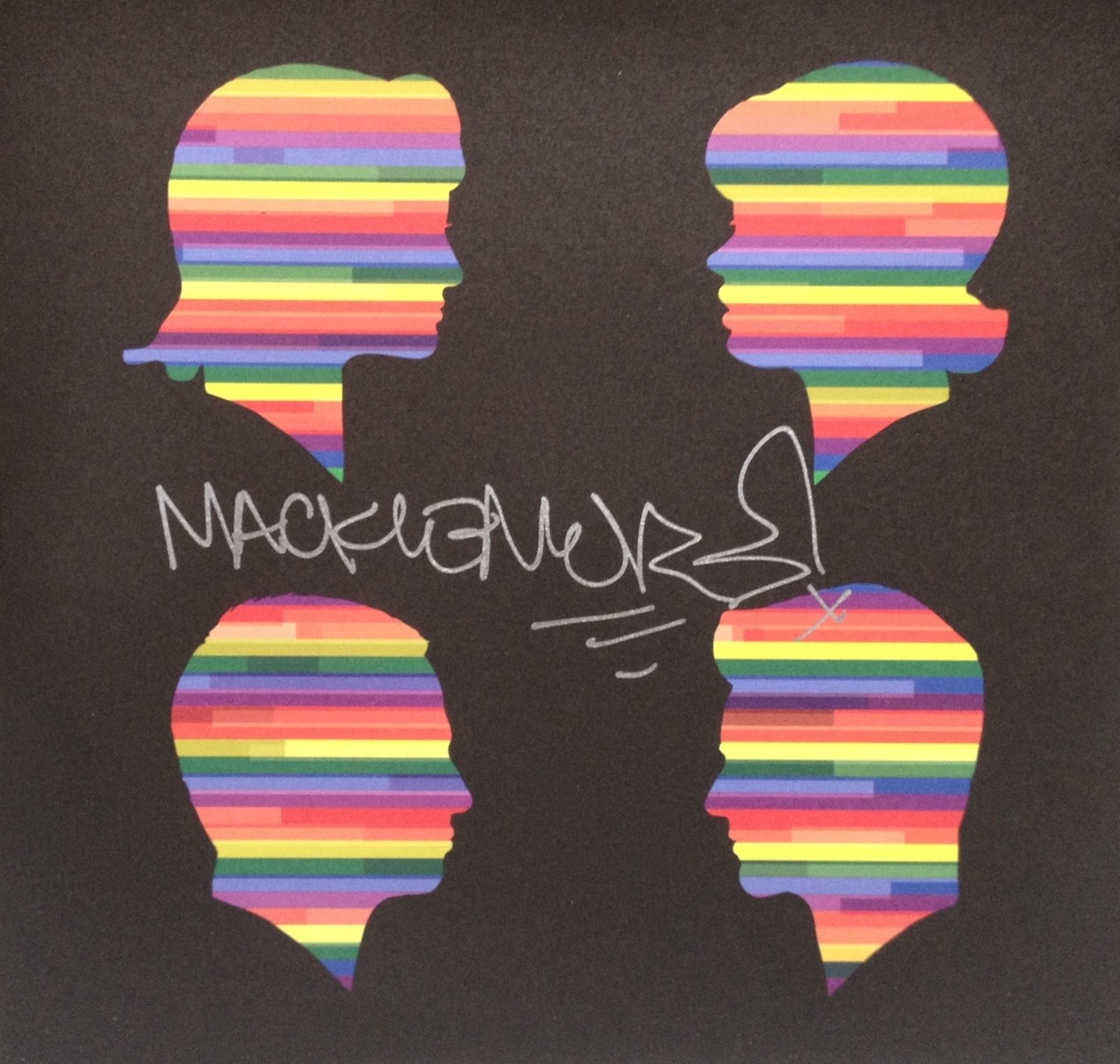
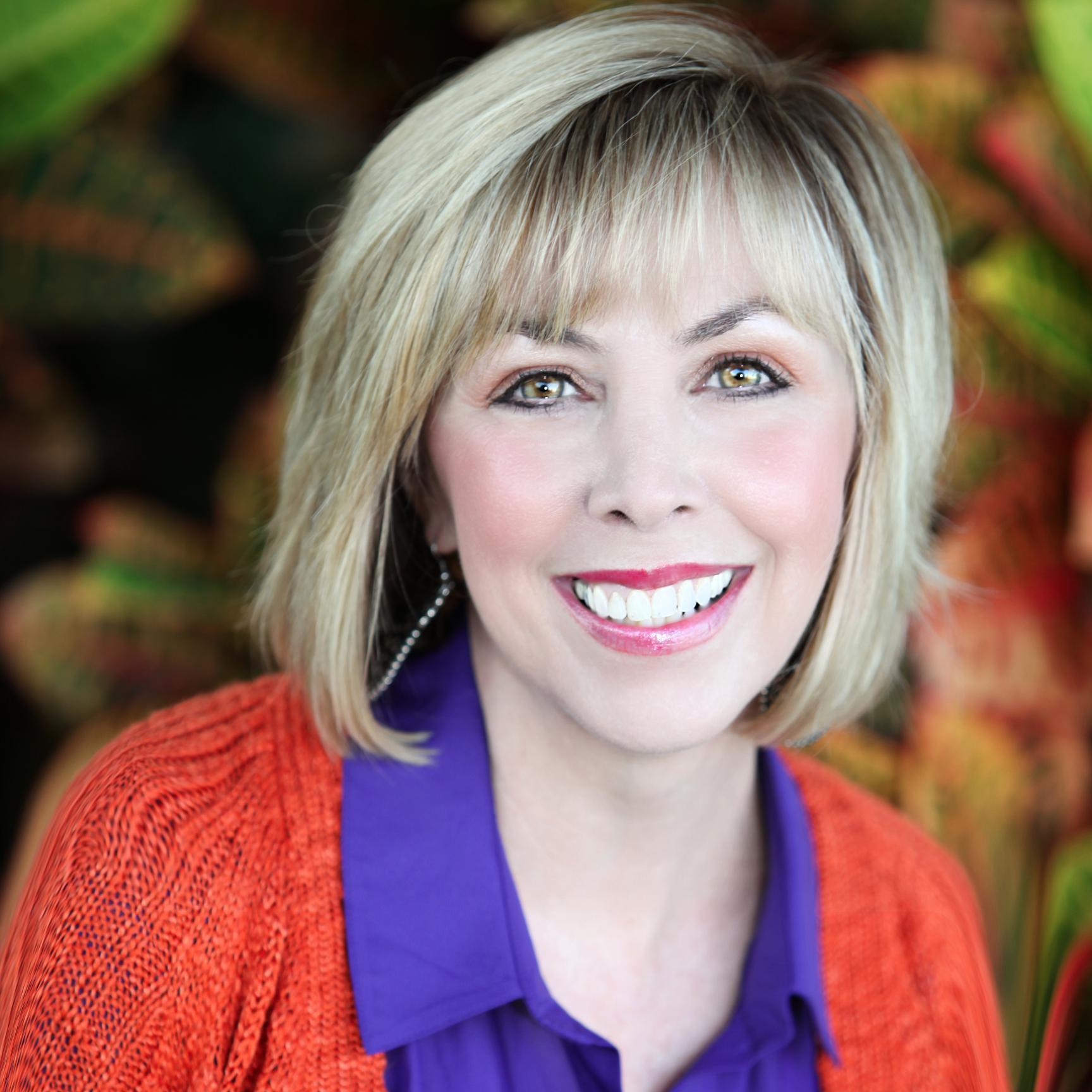
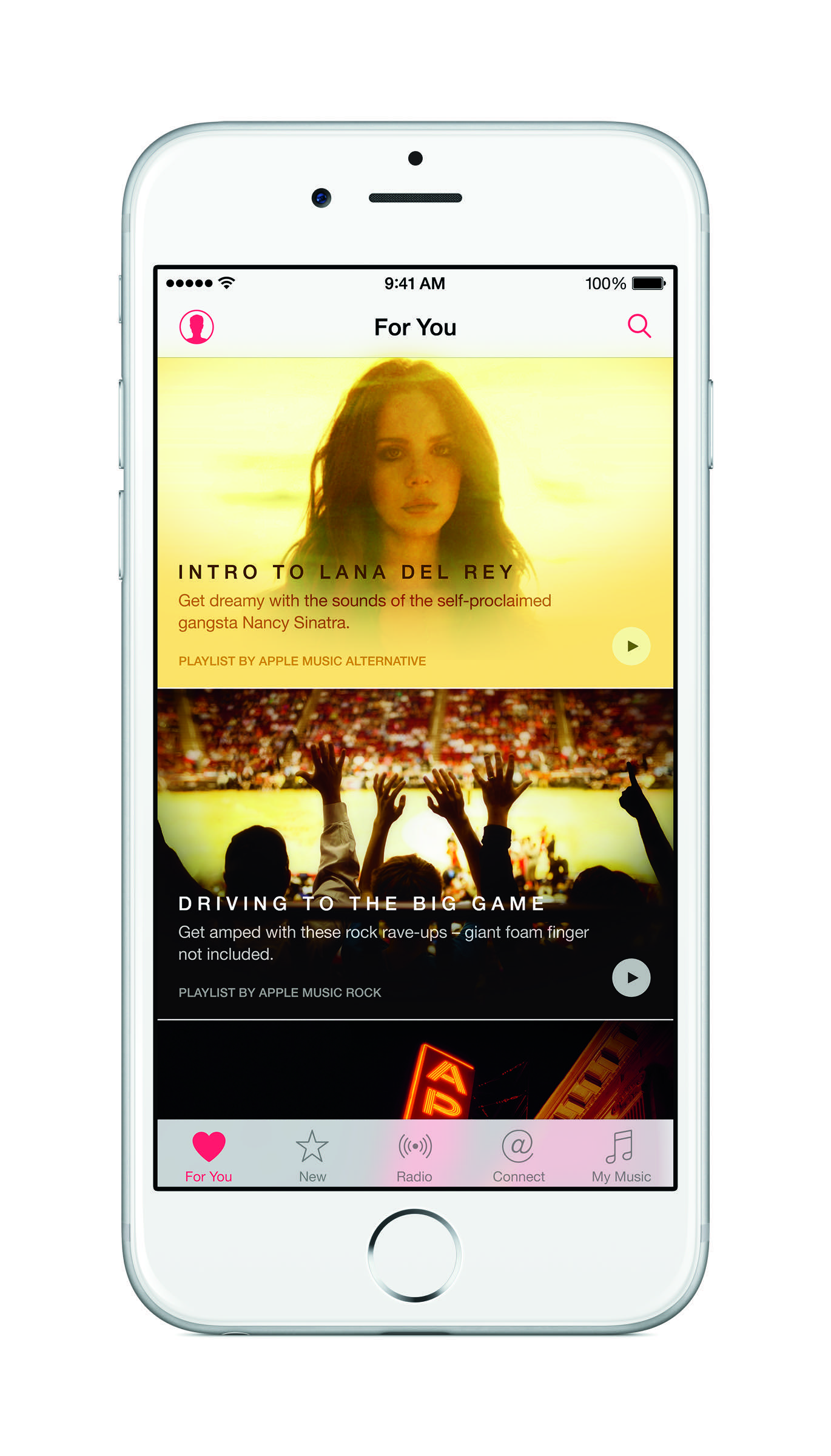
2 comments
Likester sounds great, if a little expensive. Definitely worth trying the free trial for some insights though. Thanks for the tip 🙂
You’re welcome, Seamus. If you try it, tell Kevin I sent you!